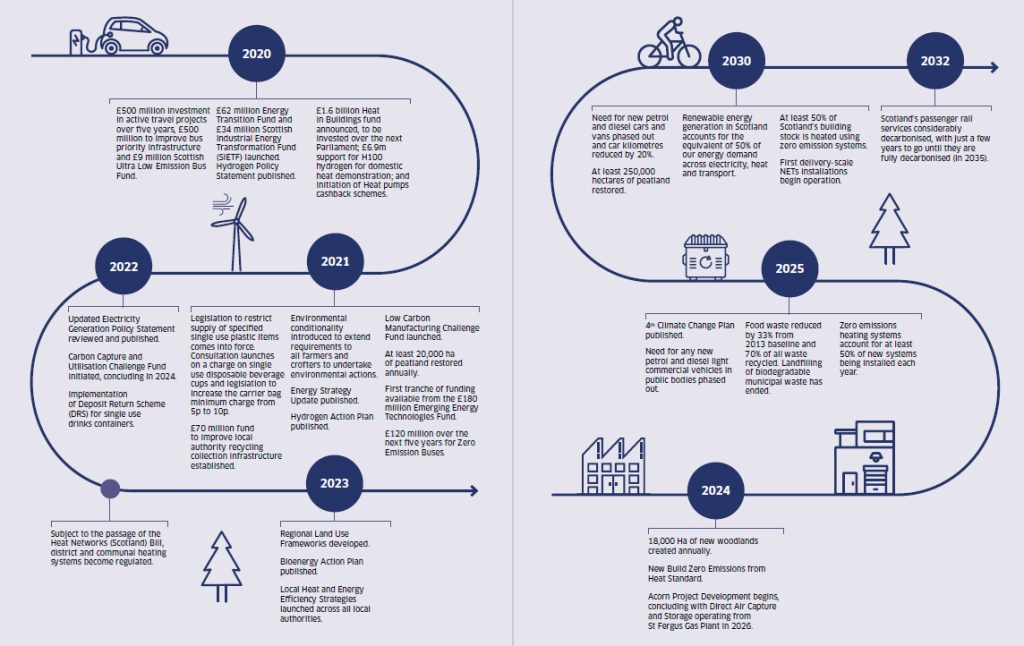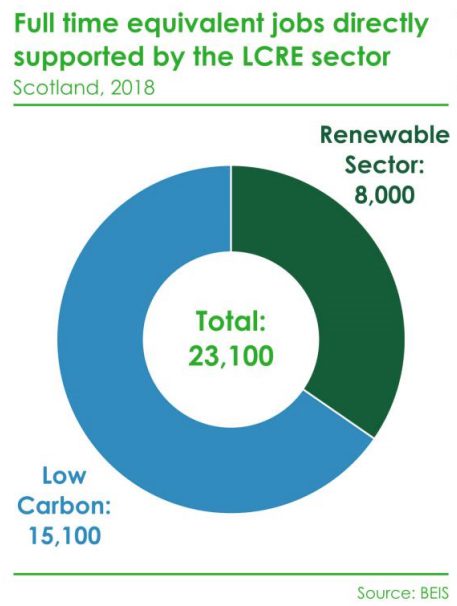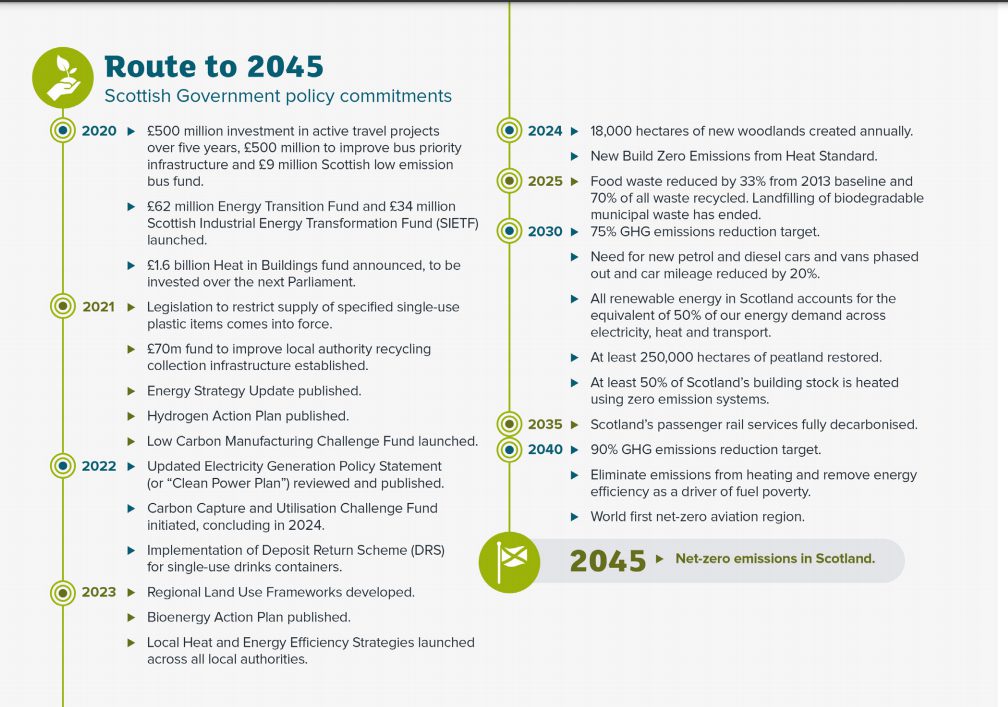Transforming Society
How can the transition to a low-carbon society be positive for society, economy and the environment?
The Challenge
Responding to the climate emergency means transforming how we live, work and travel, all within the next few decades. Could this be an opportunity to also reduce inequalities, strengthen social cohesion and build a thriving economy?
The Scottish Government has set out its Routemap to 2032 in the Climate Change Plan update:

See a larger version of this routemap on pages 17 and 18 here
Jobs and skills
Scotland’s focus on developing a thriving renewable energy and low carbon transition across all sectors was driven strongly by an interest in developing economic benefit for Scotland, specifically increasing flows of investment and creating jobs.
Now this is being complemented by a focus on inclusive growth, to ensure all parts of society benefit from the transition to net zero emissions, as a core pillar of Scotland’s Economy Strategy.

Source: The Annual Compendium of Scottish Energy Statistics 2020
Read Scotland’s Economic Strategy
Skills and training are critical in reaching Scotland’s climate targets. The right skills will help create new, high-quality green jobs and contribute to regional growth. Key to our transition to net zero is ensuring that everyone can benefit from the opportunities and no one is left behind. This is core to the Scottish Government’s focus on a ‘Just Transition’.
Green jobs include those in renewable energy, the circular economy and zero waste, and the nature based sector. Wider ‘green skills’ range from highly specific requirements in sectors directly supporting the transition, to net zero jobs in energy, transport, construction, agriculture and manufacturing, through to more generic requirements across all sectors to deliver and thrive in a net zero economy.
The Skills Action Plan set’s out the Scottish Government’s policy commitments for supporting the ‘green economy’ and a transition to net zero in 2045:

Source the Climate emergency-skills action plan 2020-2025
Read the Skills Action Plan
Read the Climate Change Committee’s recommendations for a green recovery from the Covid-19 pandemic
The just transition
Climate change impacts and policies to reduce emissions are not being – and will not be – felt equally across Scotland and across the world. Poor and marginalised people tend to suffer the worst climate impacts.
At the same time, policies to reduce greenhouse gas emissions should not impact negatively on already vulnerable groups. For example:
- Do policies to increase renewable electricity worsen levels of fuel poverty?
- Do plans for zero emission vehicles reduce access to affordable transport?
- What happens to the oil and gas workforce in Scotland during the transition?
Read about the Just Transition Commission
Local energy
The renewable energy and low carbon sector is one of Scotland’s most important, involving over 23,000 full time equivalent jobs in 2018 (ONS, 2018 ).
The Scottish Government wants to see more local economic and social benefit from the renewable energy and low carbon revolution. For example, ensuring financial investments are retained and recycled locally to support communities and local infrastructure, health and wellbeing from cleaner air in urban places, and reducing fuel poverty by having well-insulated buildings.
Community and locally owned renewable capacity is increasing:

Source: Climate Change Plan: monitoring report 2019
Our Response
Our research looks for solutions across traditional research and policy divides. A key aim is to identify how to realise co-benefits in addition to the immediate climate impact.
Jobs and skills
From our base at Edinburgh Climate Change Institute (ECCI) we work closely with Skills Development Scotland and other key stakeholders across Scotland in identifying the evolving employment and skills needs associated with the transition to net zero. This includes intelligence on the research and innovation base that supports climate policies, as well as wider skills and employment needs highlighted across different economic sectors .
At ECCI we have close links with innovation – both in taking innovative project ideas to fruition and in supporting and accelerating early stage businesses – across the low carbon sector.
We also evaluate innovative energy projects and explore financing for this growing sector, including how to develop and attract the best talent.
Featured projects
The just transition
We assess the impact of interventions on different groups and make recommendations for how policies can be designed to maximise the benefits of policies and regulations designed to support the low carbon transition and at the same time compensate for potential negative impacts.
Featured projects
Local energy
Our research supports development of local energy policy in Scotland by looking at the characteristics of successful local energy projects, finance mechanisms and distribution of local social, economic and environmental benefits.